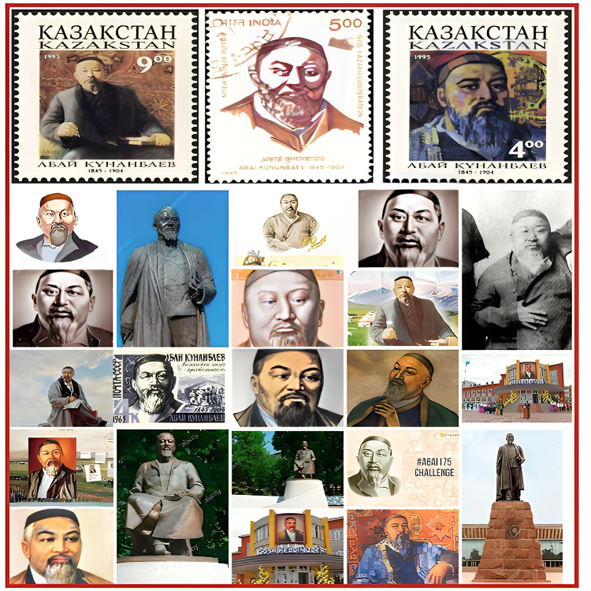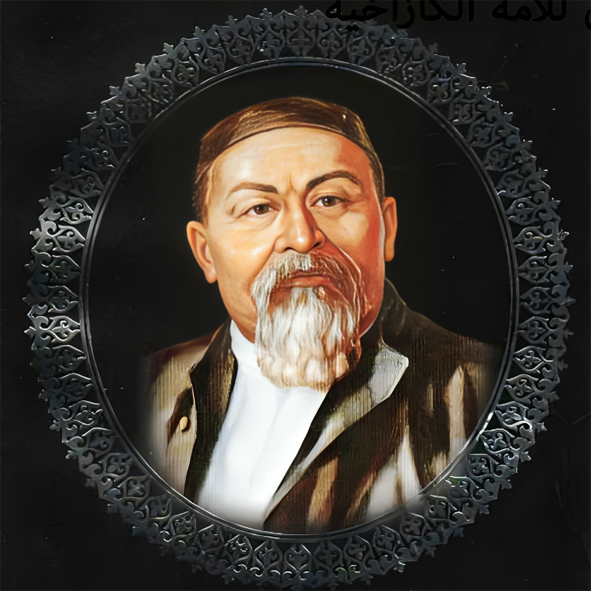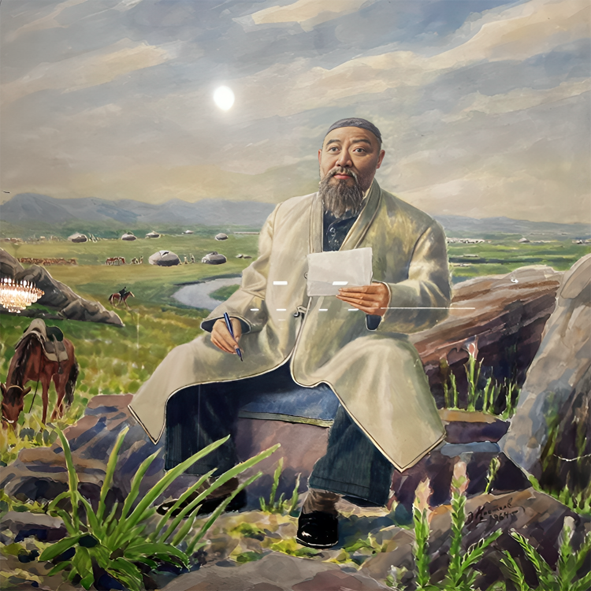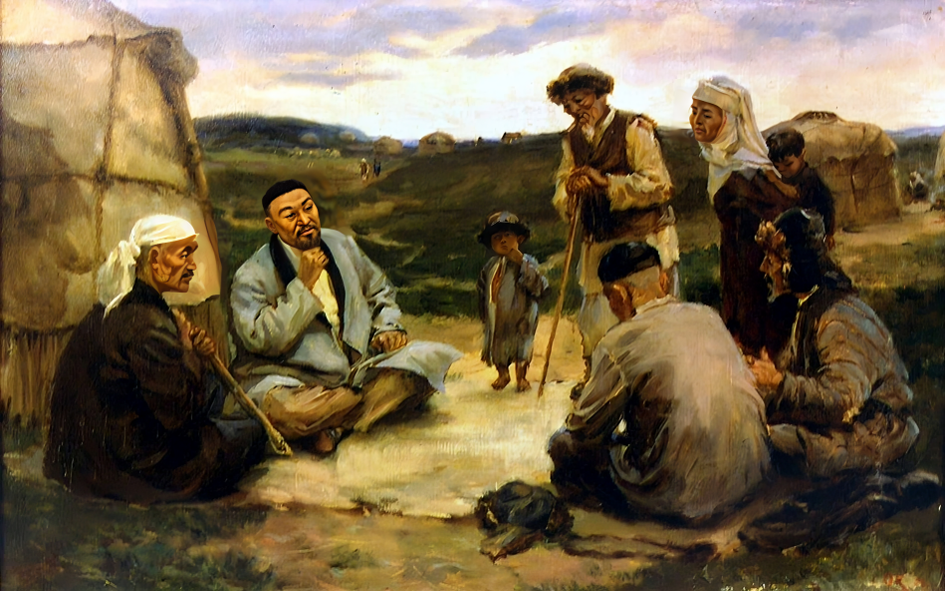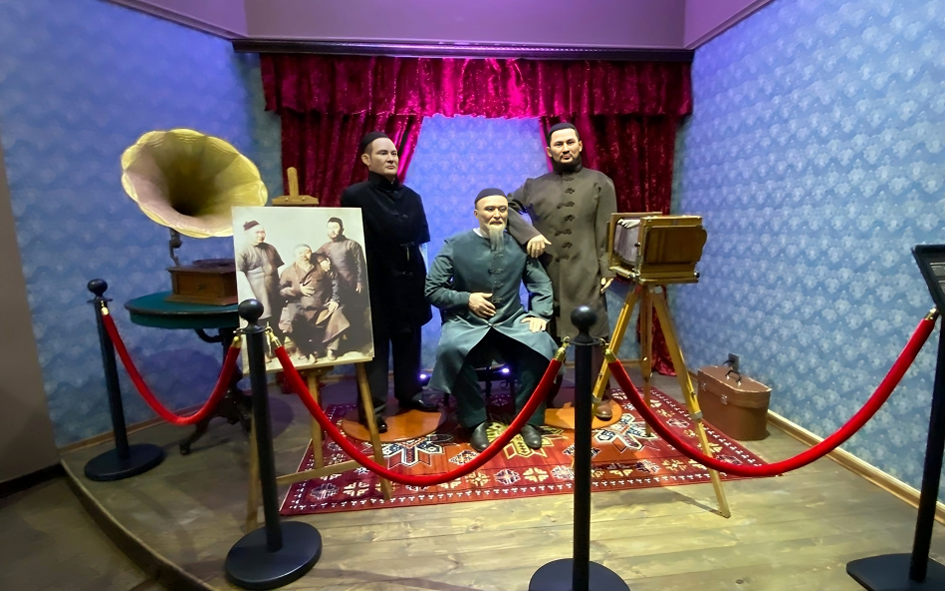Tomorrow … Kazakhstan & the world celebrating “Day of Abai”
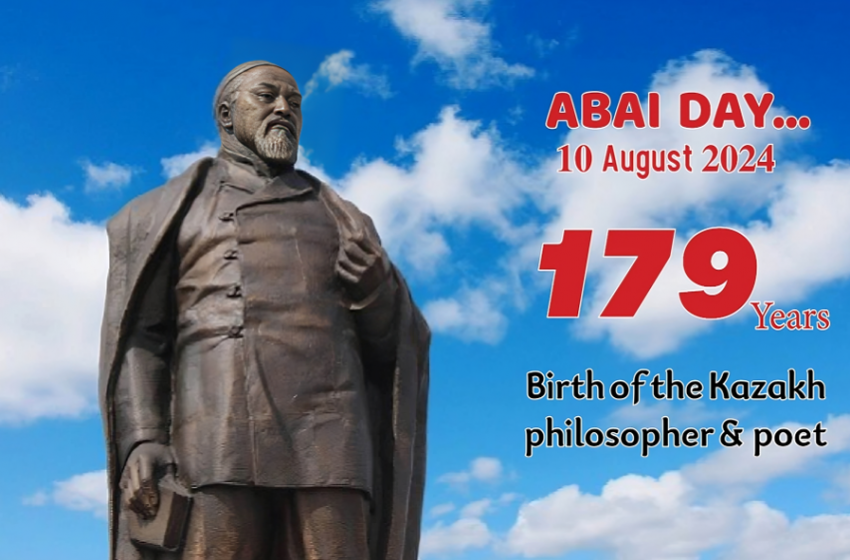
ASTANA – Kazakhstan
August 10 marks the birth of the thinker, philosopher and founder of modern Kazakh literature Abai (Ibrahim) Kunanbaiuly (1845-1904), while the world and Kazakhstan will celebrate tomorrow, Saturday, August 10, the 179th anniversary of his birth under the title “Abai Day” as an annual national holiday, after it was officially adopted in 2020, by a decision of President Kassym-Jomart Tokayev.
The poet’s real name is Ibrahim, but the nickname Abai (translated from Kazakh as attentive, cautious), given by his grandmother Zere, stayed with him for his whole life.
Abai is a great Kazakh poet, composer, enlightener, thinker, public figure, founder of Kazakh written literature, and its first classic.
Abai was born on August 10, 1845, in Semipalatinsk region to a noble family. Abai studied at a local madrasah under Mullah Ahmet Ryza and then at a Russian school.
In his works Abai described the lived realities of people, all he saw around him. He saw advanced ways to change the life of the Kazakhs by opening schools, studying, people’s enlightenment, and raising their culture. He authored some 170 verses, poems, and «Qara Sozder» (Words of Wisdom). He also translated Russian and European authors into Kazakh.
The works of Abai were translated into 116 languages around the world. The first translations of Abai’s poems were published in the early XX century. Later, his poetry and Words of Wisdom saw countless translations and republication. The majority of books devoted to Abai’s works were published in 1995, in the year of celebration of the poet’s 150th anniversary under the UNESCO aegis. The publication of the book «Works and Thoughts of Abai» in Farsi became a remarkable event in the cultural life of Iran and Kazakhstan since Abai’s works had not been published in Iran before.
In 2020, in the year of celebration of the 175th anniversary of Abai, his works were translated into 10 languages – English, Arabic, Chinese, Spanish, Italian, German, Russian, Turkish, French, and Japanese.
Several verses, poems, and all 45 Words of Wisdom were retranslated into the Russian language. The majority of the verses and three poems were translated by famous Russian poet and translator Mikhail Sinelnikov.
On the occasion of the poet’s birthday, exhibitions, conferences and recitals take place in all regions of the country. For example, the National Academic Library in Nur-Sultan will hold a literary and musical evening “Abai tagylymy.” A mobile exposition was organized in Almaty, where valuable exhibits relating to Abai’s life and work will be presented.
Abay Kunanbayev (1845–1904) is an outstanding Kazakh poet, thinker and public figure. He is one of the key figures in the history and culture of Kazakhstan and is considered the founder of modern Kazakh literature.
Abay was an educator, he called on his people to develop knowledge and culture. By his example and poems, he inspired people with the importance of learning and knowledge. His poems are filled with deep thoughts about life, human values, nature and society. His poetry is imbued with the national spirit and philosophical reflections.
Abay Kunanbaev left behind a rich heritage, including 170 poems, 56 translations, 45 short parables and philosophical treatises from his famous “Words of Edification”, as well as almost two dozen melodies.
To this day, Abay’s work remains an important component of Kazakh culture, and his ideas continue to inspire people to think about life, culture and society.
Today marks the 178th anniversary of Abai Kunanbaiuly, a renowned Kazakh poet, composer, educator, philosopher, public figure, and the founder of Kazakh written literature and its first classic. The birthday of the great poet has been officially celebrated in Kazakhstan since 2020.
Life of Abai
Abai was born in the family of the Tobykty clan ruler Kunanbai Oskenbaiuly on Aug. 10, 1845, at the foot of the Shyngystau mountains in the former Semei Region, which was renamed in honor of Abai last summer.
Abai readings event brought together 131 schoolchildren and 27 hosts from 16 regions.
Abai became a poet only by the age of 40. In his works, he wrote about the realities of life and what he saw around him. He witnessed progressive changes in Kazakh life through the opening of new schools, the promotion of sciences, enlightenment, and enhanced culture of people.
Abai wrote approximately 170 poems. His major philosophical piece, “Qara Sozder” (Words of Wisdom), remains a must-read book. He also translated 56 texts. His own works have been translated into 116 languages.
“Abai Day” is celebrated in Kazakhstan today. This year is 179 years since the birth of the great Kazakh poet, whitener and thinker Abay Kunanbayuly.
On this day, Kazakhstan remembers Abai’s immense contribution to the culture of its people, his literary legacy and wisdom passed on through generations.
Abai is a unique person in the Kazakh nation who inspired the next wave of poets and writers, artists and scientists to create. His name is famous in the world, and the valuable works of the great thinker have been translated into dozens of foreign languages.
The monuments to Abay Kunanbayuly have included the art of Tashkent, Moscow, Bishkek, Rennes, Beijing, Cairo, Budapest, Tehran, Istanbul, New Delhi, Geneva, Paris, Sarajevo, Tbilisi, Berlin, Seoul, Kharkiv and Baku.
There are 1441 streets, 12 avenues, 99 schools, 4 colleges and 2 theatres in Kazakhstan named after the poet.
In addition, 1 city, 3 districts and 28 settlements were named in honour of Abai. And last year, by the decree of President Kassym-Zhomart Tokayev, the Abai region was created, and its administrative centre is Semey.
“Abai Day”, celebrated on the initiative of the Head of State, will organize cultural and scientific events dedicated to Abai’s life and creativity in every region of the country.
Year by year, this channel of events is expanding. In addition, extensive work must be carried out purposefully to convey the cultural heritage of the great poet to future generations.
Our noble duty is to pursue the virtues of intellect, prudence, and humanity mentioned in the poet’s works, not forgetting Abai’s wisdom.

















